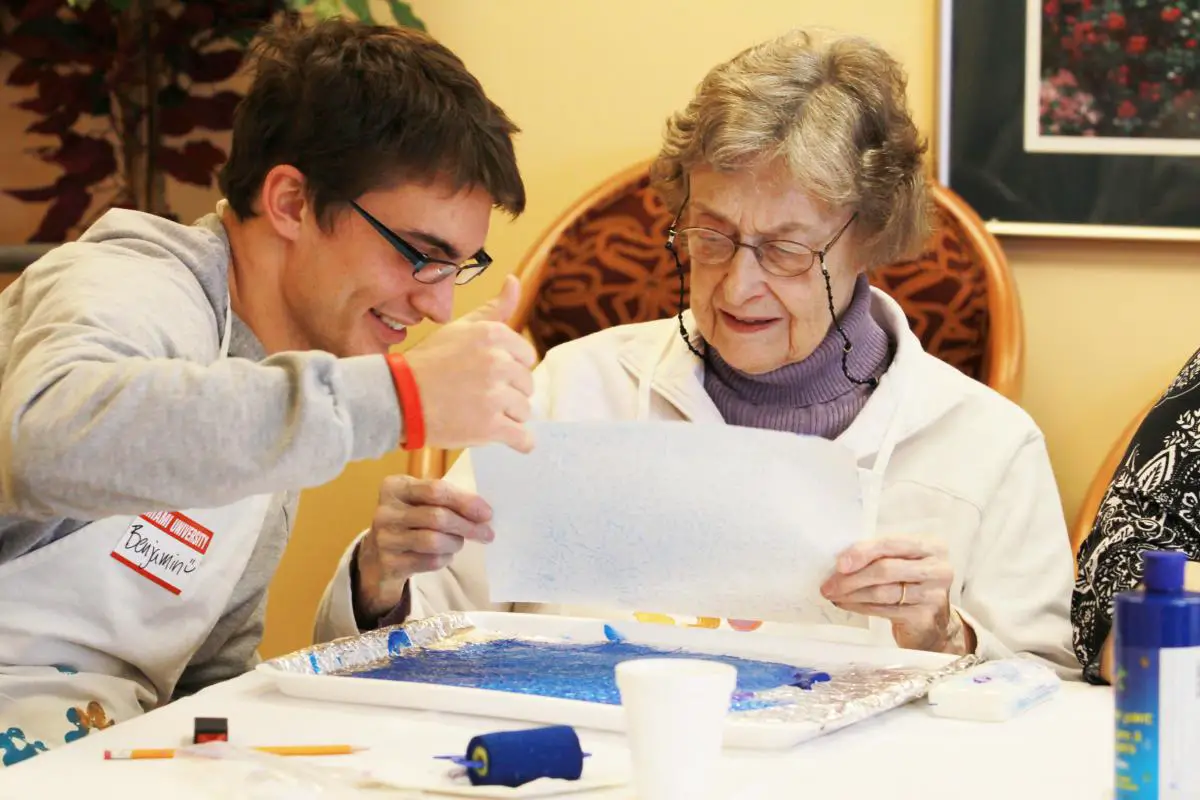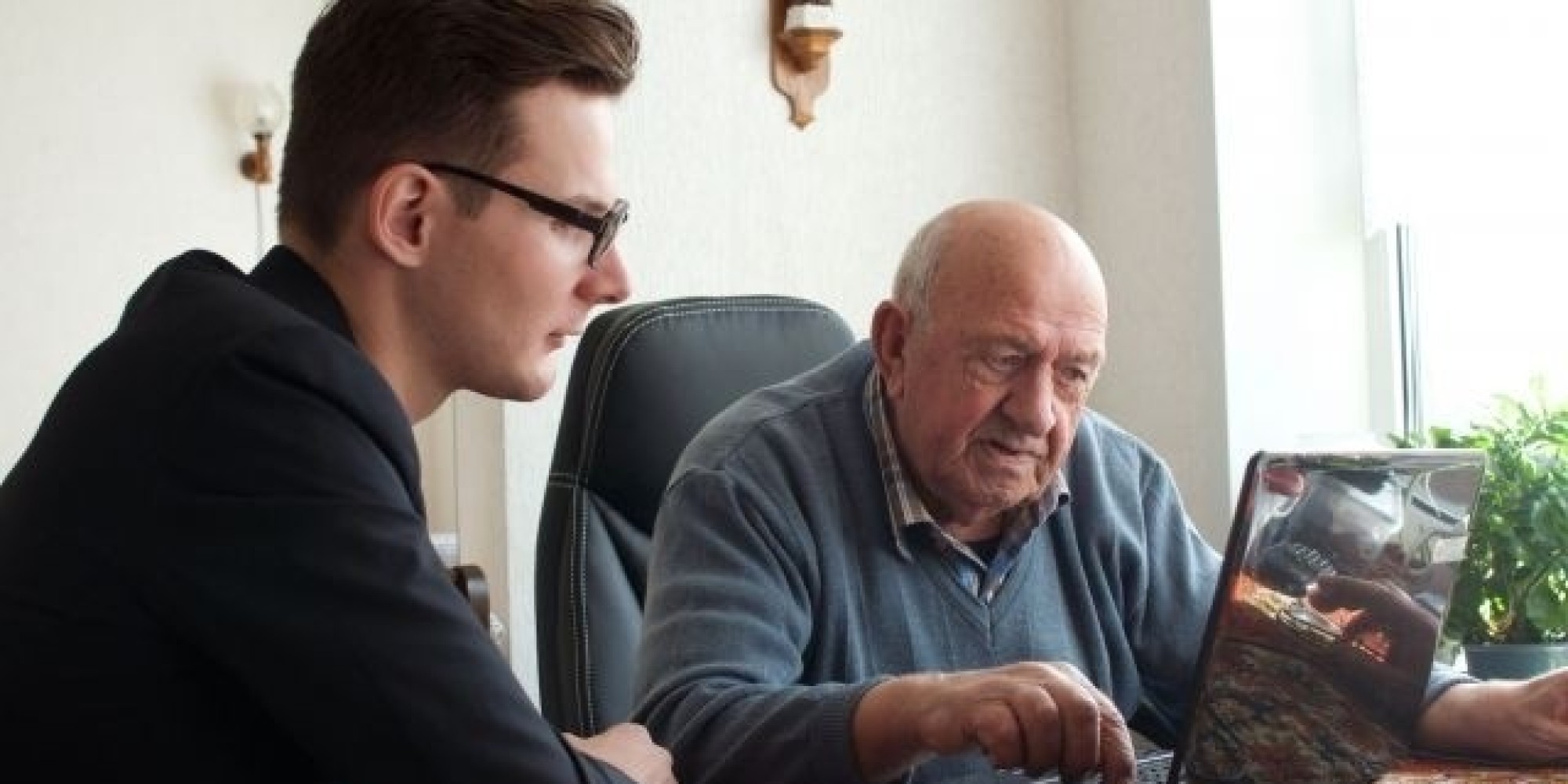The Benefits of Intergenerational Friendship
You’d be surprised by how much they can teach you.
By Josephine Werni, University of Minnesota Twin Cities
In the United States, there appears to be somewhat of a conflicted attitude toward intergenerational friendship.
On one hand, it’s something that American society seems to treasure and even idealize. Companionship between two or more individuals from completely different generations is one of the most recycled tropes in TV shows and movies (“Up,” “True Grit,” “The Karate Kid,” “Harold and Maude,” “Boy Meets World,” “Doctor Who,” “Lost” and “Buffy the Vampire Slayer” to name a few). It’s also the subject of many Modern Love stories in the “The New Yorker”. In these instances, this sort of relationship is portrayed as special and mutually beneficial.
In everyday life, however, intergenerational friendship isn’t always viewed quite as admirably. People tend to befriend individuals with which they spend the most time and with which they have the most in common—their peers. As a result, forming bonds with people that you can’t effortlessly relate to might seem a little weird. Additionally, it seems as though the current collection of living generations are having a harder time than ever relating to one another.

Baby Boomers, Generation X and millennials are frequently engaging in what the “Huffington Post” dubbed “generational warfare” (aka, talking serious shit about people who are significantly older than you and/or significantly younger than you). Millennials have been known to “joke” about being eager for the Baby Boomers to finally die off so that they can’t vote anymore, and if I had a dollar for every time I heard an older individual suggest that millennials are completely useless, I could pay off a lot of my student debt. Not all of it of course, but a hefty chunk.
Generational warfare and TV shows aside, I’d like to make a case for intergenerational friendship. Sure, being pals with your peers is beneficial because you’re going through the same things. There is an automatic, superficial level of understanding there. However, becoming friends with someone of a different generation (with whom you don’t share genetic information) is profoundly rewarding.
I’d never had a friend who belonged to a different age group or thought much about it until this past year, when I got to know my coworker, Darla. Grinding through hours of constant orders during the weekend breakfast rush really bonds people together, I suppose. Darla is exactly the same age as my mom. I didn’t predict that we’d become close friends, but I’m endlessly thankful that we did.
One of the surprising, yet wonderful things about being friends with someone from a totally different generation from you is that you’ll still be able to relate to one other in loads of interesting ways. For example, even though she’s older than me than I am old, Darla and I share a delightful array of interests. We both love cooking, writing, dogs, art and dirty jokes. We also have the same taste in music—she’ll show me older bands that she knows I’ll like and I’ll send her similar, newer tunes that I think she’ll take a shining to. We can talk about our experiences at the University of Minnesota, where I currently go to school and where she went in the 80s. I could go on.
My point is, even though it may feel like you grew up in a totally different time, especially with the way technology has completely transformed the world in the last century, you’re probably a lot more alike than you initially think.

In addition to finding common ground, chums who have a generation gap between them can also learn a lot from each other. Aged folks and adolescents will have distinct points of view that the other can benefit a lot from hearing. Sometimes, when my brain feels like it’s eroding from stress and sleep deprivation, I find that Darla is the most comforting person to confide in. It’s really nice to talk to someone who’s been through whatever it is that’s troubling you and cares about you, but isn’t one of your parents. She’s lived a lot more life than I have, and her experience really helps me put things in perspective. In turn, whenever something is gnawing at her thoughts, she’ll ask me for my perspective on the issue. More often than not, I’m able to add fresh context in a helpful way.
Since meeting Darla, I’ve learned how to use watercolors properly, how to kill rude customers with kindness and all of the badass things that puff pastry is capable of. Of course, I teach her things too. The other day, I had to explain to her what “thick” means in the modern, colloquial sense. Upon being enlightened, all she had to say was: “I’ll still never take that as a compliment.”
It’s also been proven that intergenerational friendship is not only enjoyable; it’s beneficial to the mental and physical health of both parties.
Younger and older generations tend to experience lower rates of anxiety and depression when they’re more acquainted with one another. Life is certainly more enjoyable when you’re not convinced that other generations suck, and sometimes getting to know a differently aged human is what it takes to realize that.
Unfortunately, making friends in different age groups can be kind of hard. You’re not forced to spend years of your life in school with them, so the hours required to establish familiarity must be put in elsewhere. You’re more likely to feel connected to people you spend a lot of time with. One of the most common places people form intergenerational friendships is at work, like Darla and I. Another way to establish gen gap sodality is to hang out where people of all different ages fraternize. There are a lot of community activities that everyone enjoys, like community bands and choirs, volunteer organizations and clubs. Above all, and I believe this applies to nearly every life situation, just keep an open mind.


















[…] HOW HAVING MUCH OLDER (OR YOUNGER) FRIENDS CAN CHANGE YOUR LIFE […]